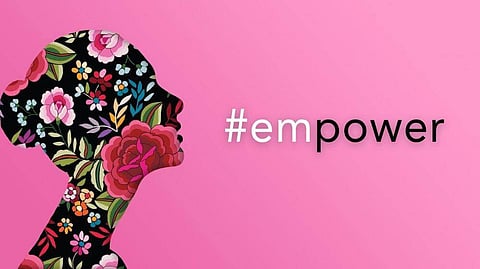
- Home
- Live Blog
- Breaking News
- Top Headlines
- Cities
- NE News
- Sentinel Media
- Sports
- Education
- Jobs

Joya Saikia
(The writer can be reached at joyasaikia1990@gmail.com)
True progress for women is not merely about breaking barriers but fundamentally transforming the structures that have long hindered their advancement. Nowhere is this transformation more critical than in the realm of electoral politics, where Indian women face significant under-representation and systemic obstacles. Despite some strides in recent years, India’s position in global rankings of female political representation remains dismal, highlighting the urgent need for comprehensive reform and active measures to create a more inclusive and equitable political environment.
Current State of Women in Indian Politics: India, with its vast population and diverse demographics, ranks a troubling 143rd in the monthly ranking of women in Parliament compiled by the Inter-Parliamentary Union’s Parline, out of approximately 180 countries. This places India alongside nations such as Congo, Botswana, and Jordan, underscoring a significant disparity between the potential and the reality of women’s political representation.
In recent general elections, female voter engagement has shown a steady increase. However, this has not translated into a proportional rise in successful female candidates. Out of 543 Lok Sabha constituencies, only 74 women candidates emerged victorious in the latest elections, resulting in a strike rate of 9.3%. This figure is a decline from the 11.7% strike rate observed in 2019 and a stark contrast to the 48.6% strike rate in 1962, when 74 women contested and 36 won. Despite over 790 women contesting this year, the number of women hopefuls remains significantly lower across all parties and independent candidates, freezing the level of female representation for another five years. This stagnation will inevitably impact debates, policy-making, and the presence of women in crucial decision-making positions.
The Case for Political Reservations: Political reservations for women represent a potentially transformative tool for advancing gender equality and improving developmental outcomes. For a country where women constitute half of the population, it is incongruous to have policies shaped solely by men. While reservations in panchayats and local bodies were initially perceived as token gestures, the impact of the 73rd and 74th Constitutional amendments, which reserved one-third of seats for women in local administrative bodies, has been significant and empowering.
Thirty years on, these amendments have facilitated the rise of over 1.4 million women into leadership roles at the grassroots level. Women now hold around 44% of seats in local bodies, placing India among the top-performing countries in women’s political empowerment at the local level. The success of women in local governance underscores the potential of political quotas to drive meaningful change and foster female leadership.
Challenges and Opportunities: With the Women’s Reservation Bill now committed to law after nearly three decades of political fluctuation, the focus must shift to increasing the number of women candidates in forthcoming elections. The challenge lies in nurturing women to contest in the 2029 elections and addressing potential supply-side shortfalls. Political parties must invest in capacity building and legislative training for future female legislators while actively grooming candidates ready to enter the fray.
The transformation of democratic institutions to reflect diverse and representative voices requires a shift away from entrenched family dynasties and political nepotism. As businesses have modernised and moved away from family-run enterprises, democratic expectations must evolve similarly, emphasising merit and inclusivity over lineage.
Navigating the Political Maze: In the competitive world of electoral politics, family background can offer a significant advantage. Successful women candidates often hail from politically active families, such as Supriya Sule, Kanimozhi Karunanidhi, and Dimple Yadav. This familial advantage can create barriers for first-generation entrants who lack such support networks.
Instances like Kriti Devi Debbarman from Tripura East and Dr. Lata Wankhede from Madhya Pradesh illustrate how connections and political lineage can impact a candidate’s success. Despite efforts by some parties, such as the TMC’s achievement of electing 11 women MPs, including first-time entrants, the political arena remains challenging for those without established backgrounds.
Breaking Down Barriers: Women in politics must navigate a complex array of barriers, from systemic gender bias to entrenched discriminatory attitudes. The UNDP’s 2023 Gender Social Norms Index reveals pervasive discriminatory attitudes towards women in India, further complicating their path to political success.
Empowering women in politics requires more than simply increasing their numbers; it involves redefining the conversation and rewriting the rules to create a more just and balanced society. Political parties and leaders must lead by example, ensuring that the impact of the reservation bill extends beyond token representation to strengthen the political authority of all women and encourage their meaningful participation in legislative processes.
Looking Ahead: To ensure success by 2029, efforts to empower women in politics must begin now. This involves not only legislative reforms but also a cultural shift towards valuing diverse voices and fostering an environment where women can thrive as leaders. By addressing systemic barriers and promoting inclusive practices, India can pave the way for a more representative and equitable political landscape.
The path to true progress for women in Indian politics is long and challenging, but it is essential for building a future where all voices are heard and valued. By reshaping the foundations of political representation, India can move closer to a society where gender equality is not just an aspiration but a reality.